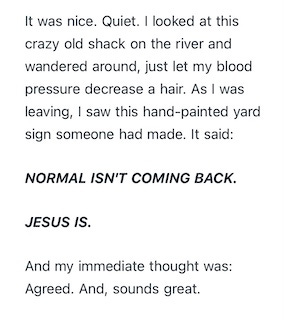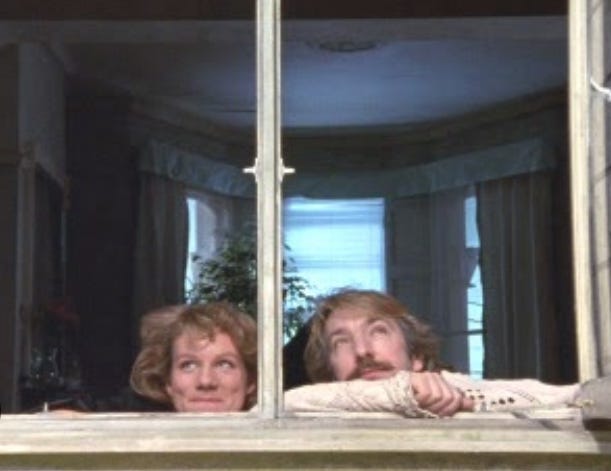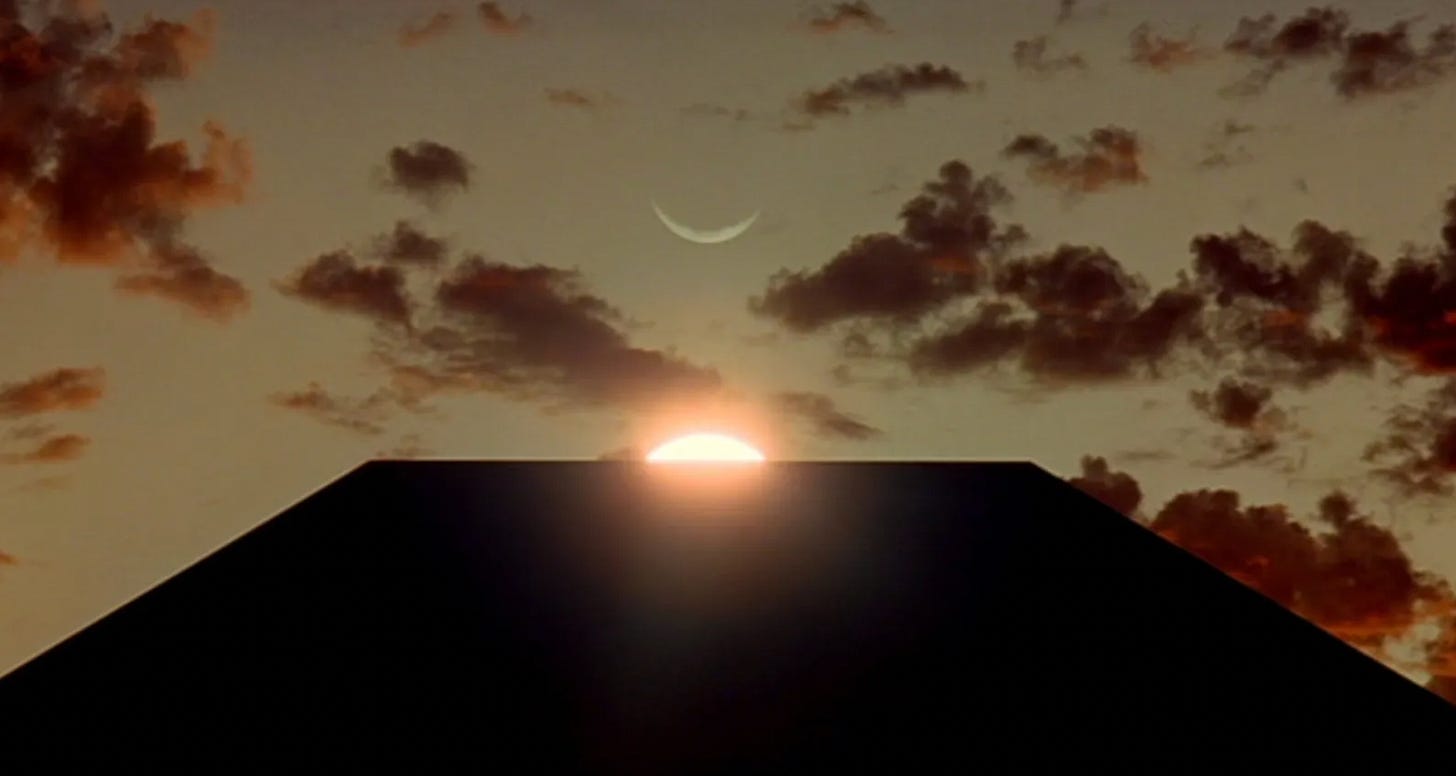The Second Coming of Everything
Season 9, #2: Daytalking without a friend? Turn your intuition level up to 11
WHEN I’M RUNNING ON intuition and pay attention to what’s coming at me, I sometimes make connections.
This past June was an awful month for that—it felt cursed through and through. Oddly, July has a different energy: Almost like the universe is making a statement or something. That thought popped into my head at the start of the Fourth of July holiday.
You see, when I plan these StoryShed “seasons” around the overarching topic of Stargazing, Nightwalking—or in this case, Daytalking—things don’t necessarily plop into neat little categories. There’s a lot of overlap. June felt like Nightwalking, aka “the Summertime Blues.” July started perky enough, but not at the effervescence level “normally” found in Daytalking.
So what to do about this? Lean on intuition harder?
Well I tried that on a ramble last week. While hanging at the public library, I picked up some music CDs and three movies—one film I’d never seen before, just by looking at the title and being curious about it. The music included a compilation of 1960s London pop music I wasn’t familiar with. The two movies I’d seen I just wanted to see again: Errol Morris’s 1997 documentary Fast, Cheap & Out of Control and the late Anthony Minghella’s first film, Truly, Madly, Deeply (1990). The film I’d never seen was René Clément’s 1952 World War II drama Forbidden Games. I watched that Thursday night along with the Morris film second, then Minghella’s Friday night.
Then this morning I received an email from artist and former Low bassist Zak Sally that contained this mystery:
“Normal isn’t coming back. Jesus is.”
Now hang on a moment, Zak Sally (and yours truly) isn’t a born-again Christian trying to convince you that Jesus’ “second coming” is imminent. What I found intriguing about his newsletter post was a positive spin that, well, maybe “normal” as we knew it wasn’t all that helpful and moving through the current shitstorm of change is the best we can do right now.
Maybe it’s the only thing.
Further on, Zak wrote something that set the hair on the back of my neck on end: “But a lot of people do believe it, truly and deeply. In fact, I think a lot of people are counting on it, to varying degrees. I have some thoughts about that, but for now we'll just call it a difference of opinion (Rather than, say, something I'd like to kill someone about. Which I don't.) and a further attempt to not get in the weeds.”
Truly and deeply. Missing a “madly.” Maybe the madly is just more “fast, cheap, and out of control” we no longer need? And what about those “forbidden games”?
René Clément’s film begins with Parisians escaping the city in the wake of the 1940 Nazi occupation. Five-year-old Paulette is orphaned when an air raid kills her mother, father, and pet dog. She recovers her dog from the river and walks on, eventually meeting a 10-year-old farm boy, Michel Dollé, who takes her home to stay with his family, which is going through its own problems in wartime France.
The film is a must-see for every American in 2025’s chaos, maybe as an object lesson in how calcified thinking has gotten us into a hate-spewing and wrong-side-of-history-leaning society. It also provides apt lessons about grief. You see, even as Michel takes care of Paulette, she does the same for him. In the end they must be separated, and Paulette still believes he’s out there in the world and she will rediscover him and reestablish their bond. It’s a beautiful thing to hope for.
In one scene, Paulette admits, “I want to find my mom and dad on the bridge,” but Michel counsels her to move on, saying flatly, “They’re not there anymore.”
In Truly, Madly, Deeply, Nina (played by Juliet Stevenson) is revisited by her dead lover Jamie (the late Alan Rickman) as a ghost, only to discover the real future involves moving on. It’s heartbreakingly true, and again, another lesson in how to grieve and yet somehow look toward the future.
So where am I in all this?
Welp it’s been a long road of grief since my parents died in 2008. My brother had a different layer of grief laid on top of his experience, ending a marriage of two decades. He pushed through, found a new partner, and is remarrying this October. I think that’s inspiring and I wish them both the best.
In the movies, Nina meets Mark, and she seems ready to move on after Jamie. After Paulette met Michel, maybe they will meet again (since the film ends with his last name being her “adopted” new name)… who knows? When they’re older, after the war?
All this year I’ve been fighting a vague feeling that “my story” was over.
I know, I know. That’s not true.
But at the darkest points it’s difficult to see where to go, which path to take. I’ve been bullish on “well-being” since the election and this past spring—taking care of myself, eating healthy food, staying hydrated, getting enough sleep (or napping if necessary to catch up).
But the social aspect of life (much as it has been for many Americans) has atrophied. Flatlined, even.
When I compare today to what’s come before, I recall the quick turns in my life story. When one stage became intolerable, I worked toward changing it. I think that’s where I am now. But I need help to do it, unlike in the past where I had resources (more friends and maybe family around to counsel) or I tried to struggle through a decision on my own.
The commonality in the three films was all the grieving characters (or Morris’ scientists, topiary artist and lion tamer), were able to move forward through their “problem,” which they discovered through…
Service. Dedication. Honoring their relationships.
Nina discovers through her service work to Maura, who’s having a baby, the pathway to meeting Mark, with whom she falls in love in the end. Michel finds his meaning in serving Paulette by playing along with her need to bury all the dead creatures they find, making her happy and useful in her grief, and feeling a part of his family.
This is probably what I need to do in order to move forward: Find ways to serve others. Finally, an answer. Thank you, intuition!
Where are you in your journey just now? Do you have support? Too much? Too little? Just right?
What if that were to suddenly change? How would you shift your plan?
Notes and extra texture
Trailer for René Clément’s 1952 film Forbidden Games:
Trailer for Errol Morris’s 1997 film Fast, Cheap and Out of Control:
Trailer for Anthony Minghella’s 1990 film Truly, Madly, Deeply:
Music from the 1960s (actually recorded in 1978), The Moody Blues, “The Day We Meet Again”:









Totally relate to this, Mike. Spot on. Your writing is amazing.
Lovely essay, Michael. Thought-provoking.